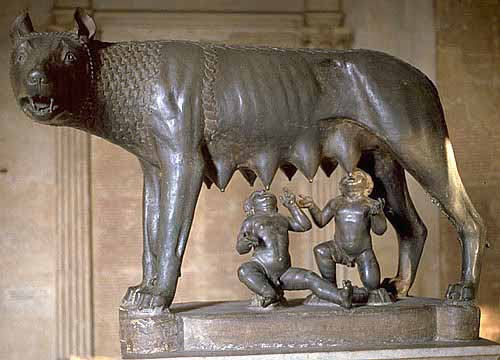The word "limbless" inserted here by Rakovsky has no value in the question, especially when the narrator says he can count all his bones. Perhaps Rakovsky imagines he is looking on his severed arms and legs. Rakovsky is trying too hard to suggest that something has physically and violently happened to the narrator.rakovsky wrote:Psalm 22
6 But I am a worm,
14 I am poured out like water, and all my bones are out of joint
16 For dogs have compassed me: the assembly of the wicked have inclosed me: _________ my hands and my feet.
1. Why does he compare himself to a limbless worm?
First you must discern what the narrator intends when he says his bones are out of joint.rakovsky wrote:2. How did his bones get out of their joints?
You don't know yet. You have shown no physical damage done by anyone to the narrator. In fact, I think you are simply wrong and don't understand the psalm and what the narrator is doing.rakovsky wrote:3. How does the relationship of the enemies, armed with horns and swords to, the arms/hands explain that the bones are out of joint?
Besides assertions, there is no evidence that the narrator has been physically violated. This is all just fantasy.rakovsky wrote:Considering the Hebrew use of chiastic structure, it's poetically interesting also how the passage forms an structure of "jaws". The top part of the passage about enclosing the narrator is the top "jaw", and the bottom part about enclosing the narrator is the bottom "jaw", with the physically suffering narrator "bitten" in between.
Obviously nothing has physically happened to the narrator here. They gaped at him. Gaped!rakovsky wrote:12 Many bulls have compassed me: strong bulls of Bashan have beset me round.
13 They gaped upon me with their mouths, as a ravening and a roaring lion.
rakovsky wrote:14 I am poured out like water, and all my bones are out of joint: my heart is like wax;
it is melted in the midst of my bowels.
Yet again nothing to suggest that the others have done anything physical against the narrator.
Again, not a hint of a thing to suggest that anyone has done anything physical to the narrator. He feels bad. His mouth is dry. He has no strength. But can you see anyone harming him in the narrative??rakovsky wrote:15 My strength is dried up like a potsherd; and my tongue cleaveth to my jaws; and thou hast brought me into the dust of death.
It would be better if you left philology to those who know something about it.rakovsky wrote:16 For dogs have compassed me: the assembly of the wicked have inclosed me: kari/karu/kru my hands and my feet.
And try this:
"For dogs have compassed me: the assembly of the wicked have encircled me like a lion,
My hands and my feet, I can count all my bones..."
Who can divine its merits?
Show us all where the narrator says he was physically harmed. There seems to be nowhere.rakovsky wrote:1. How does the narrator pour out if his body was unharmed?
I see no evidence for it. Perhaps you could argue the point rather than use innuendo. By the way, who is "you" in that verse?rakovsky wrote:2.(A) Isn't the "Dust of death" a reference to a body's state of being physically dead?
Most of this does not relate to the text. I haven't signed on to the chiastic structure and you are just riffing on the text. All I can see is someone who cannot let go of the errors he has subscribed to and merely defends the commitments made rather than analyze the complaints against them.rakovsky wrote:(B) Isn't V. 29 of this chapter contrasting those who are fat on the earth with those who go down to the dust, as a comparison of the living with the dead?[.quote]All they that be fat upon earth shall eat and worship: all they that go down to the dust shall bow before him: and none can keep alive his own soul.
By the time we get to verse 22, the narrator has worked through his difficulties and resolved his anxieties by giving himself into the protection of God. We've gone from the isolation and fear of the first part of the psalm to the security of understanding that God knows what he is doing. No harm has happened to the narrator and he can see that God did not turn his face from him. The narrator plainly does not include himself in v.29, which should be enough to dissuade you from the point you are attempting here.
rakovsky wrote:3. The melting of the heart is the center of the chiasm above. If a heart melts into the bowels, isn't it experiencing collapse, softening, and death?
And I do love the decorative touch of your garish images. Just because you don't understand the psalm doesn't mean that you have to avoid being colorful.
